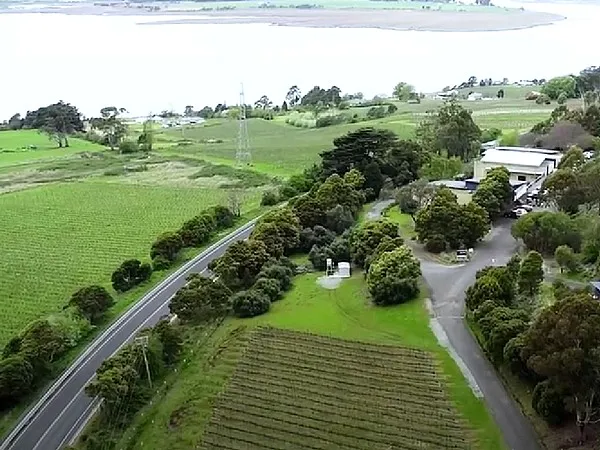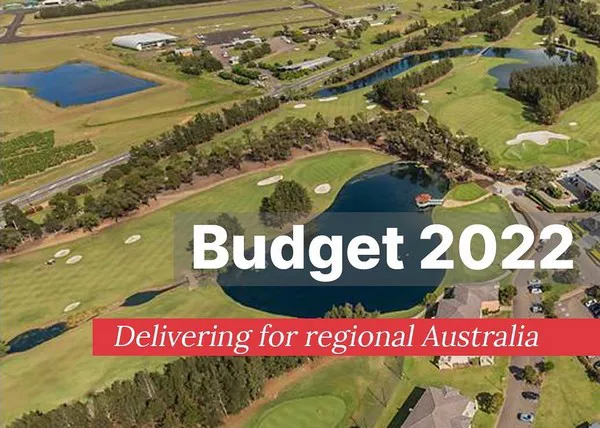Australia's peak farming body has welcomed the Federal Government's increased commitment to sustainable farming into the future but criticised that not enough was done to combat food price inflation, including fruit and vegetables.
In this week's budget, $302.1 million over 5 years from 2023–24 has been committed, specifically for the farm sector, through the Natural Heritage Trust to support the transition of the agricultural sector towards sustainable farming and land management practices. It will also aim to build Australia’s climate and disaster resilience and contribute to emissions reductions and improved environmental outcomes.
"We welcome the $302 million to support the transition of the farm sector towards sustainable farming and land management practices," National Farmers’ Federation President Fiona Simson said. "This is a critical announcement that will help farmers understand and respond to climate change, and access new environmental markets. NFF will seek to work with the Government on the design and implementation of this measure. We also welcome the restating of the measure that would support the introduction of legislation to treat carbon and biodiversity income as farm income."

Photos courtesy: Labor party's budget promotional material, below Senator Murray Watt (Source: Twitter)
However, the NFF says the budget could have done more to deal with the rising cost of groceries, and that more could be done to increase production and contain food price inflation.
“While this Budget delivers on fantastic election commitments in areas like connectivity, it is also wanting when it comes to some of agriculture’s greatest challenges,” Ms Simson said. “Farmers are in the grip of a severe labour crisis, facing skyrocketing costs, and currently experiencing flooding – in some cases for the third time in 12 months. These pressures on farmers are being felt by everyday Australians who are witnessing supply and price shocks on supermarket shelves. We can’t turn a blind eye to the pressure this is putting on household budgets. There are steps the Government can and should take to boost output and ease supply and cost issues. Things like improving access to labour, bolstering supply chain infrastructure, and securing our access to water."
Australia’s biosecurity environment continues to face increasing risks, including the fight to contain a Varroa mite outbreak. The NFF says the fast-tracking of preparedness, detection and response measures, detector dog funding as well as additional funding for traceability improvement are all important measures to bolster our biosecurity preparedness but noted that much of this is comprised of previously announced measures. It also pointed out there was no commitment to establish a sustainable funding stream for our biosecurity system.
 Federal Minister for Agriculture, Fisheries and Forestry Murray Watt also announced $20.8 million to prepare farms for the next drought. He said: “The agricultural sector has had two bumper years, and it is important to look to the future and be ready for the challenges that lie ahead. That’s why we have dedicated funding for the government to be prepared for the next drought and to increase adoption of established drought resilience research, so we are ready to support farmers and communities when they need it most."
Federal Minister for Agriculture, Fisheries and Forestry Murray Watt also announced $20.8 million to prepare farms for the next drought. He said: “The agricultural sector has had two bumper years, and it is important to look to the future and be ready for the challenges that lie ahead. That’s why we have dedicated funding for the government to be prepared for the next drought and to increase adoption of established drought resilience research, so we are ready to support farmers and communities when they need it most."
The NFF also welcomes improvement to connectivity in rural farming areas, including the budgeting of the previously announced $30 million for on-farm connectivity, $20 million for an audit of mobile coverage and $6 million for the Regional Tech Hub.
Ms Simson did note that the Federal Government handed down a 'transitional budget' after the Labor party took office in May, and hopes further measures can be announced when the budget returns to its traditional May date in 2023.
Mixed reaction to PALM Scheme measures
One of those areas was the Pacific Australia Labour Mobility (PALM) Scheme, which the NFF notes that an election promise has been underdelivered. The Budget reveals that Labor’s election commitment to cover worker travel costs under the PALM Scheme will instead be replaced with an underwriting scheme.
“The labour crisis is a major barrier to farm production in Australia, and instead of decisive action to end that crisis – the Budget contains a setback,” Ms Simson said. “This commitment to help with the cost of bringing in Pacific workers was a consolation prize for the scrapping of the Ag Visa. Now it becomes the latest in a series of bitter blows and disappointments for farmers pleading for an end to this crisis. As the workforce crisis drags on, farmers are making the difficult decision to scale back production or leave the industry entirely – leaving Australia more vulnerable to price and supply shocks.”

Not everyone was disappointed with the announcements surrounding the PALM Scheme, with the Australian Fresh Produce Alliance (AFPA) welcoming the measures to expand it saying it will allow more employers to engage workers, tackle skills shortages, and seeks to improve housing availability. AFPA CEO Claire McClelland highlighted the reimbursement of worker travel costs that cannot be recouped by the employer through no fault of their own and increased resourcing to grow the PALM scheme.
“The Government’s measure to effectively underwrite flight costs of workers will support Approved Employers to further invest and recruit through the scheme,” Ms McClelland said. "This commitment makes sense as it helps employers manage the risks associated with upfront costs, while avoiding unnecessary red tape, and makes recruitment within the PALM scheme more attractive to horticulture businesses. This is coupled with resourcing to engage in further action against unscrupulous operators who encourage workers to breach their visa conditions. AFPA members currently employ 5,700 PALM workers or a third of the PALM workers engaged in the horticulture sector. Increased resources to support more PALM workers engaging in the program acknowledges just how critical the PALM scheme is to our industry."
The Government has also committed additional resourcing to the PALM scheme to increase the number of PALM workers participating in the program to 35,000 by June 2023. The AFPA also welcome the increased investment in skills and training, through 480,000 fee-free TAFE places, as well as the National Housing Accord to increase the stock of housing.
“Australia’s fruit and vegetable growers are going through some of the toughest operating conditions of recent history - extreme weather, rising input costs, labour and skills shortages and a range of other challenges are all contributing to the pressure on our producers,” Ms McClelland said. "There is no silver bullet but the measures in this Budget should combine to ease some of the strain on the industry."
